I look forward to my group therapy each week, it creates a very positive and always has great conversations. They are helpful and honest with you, not like some other centers that love to beat around the bush. Truth is that if you don't want to be clean then you won't be, fo ...
About MCCA, Midwestern Connecticut Council of Alcoholism, Inc.
The Midwestern Connecticut Council of Alcoholism (MCCA) has been helping people with substance use issues since 1972. Their Waterbury, Connecticut, outpatient addiction treatment clinic offers compassionate care in a city known for its supportive and inclusive environment. Clients often share how the team’s genuine care and dedication make a lasting impact, helping them build connections during recovery and beyond.
Comprehensive and Convenient Addiction Treatment
There are plenty of ways to get the support you need. Whether it’s sitting down with a counselor or joining a group, you’ll learn about addiction, your habits and triggers, and how to make real changes. They offer medication assisted treatment (MAT) for clients dealing with opioid use disorders.
Understanding that sometimes life gets busy, they offer flexible hours to make getting help easier. They’re even open late three nights a week. On Tuesdays and Thursdays, you can walk right in without an appointment and be evaluated for treatment.
They also offer outpatient services for Spanish speaking clients. These services are offered during day and evening hours three days a week.
Insurance & Payment Options Made Simple
They accept many insurance plans and work with you to figure out whether your treatment will require authorizations or co-pays. Making payments is easy since they accept cash, checks and credit cards. If you don’t have insurance, they can help you apply for Access Health CT or connect you with the Connecticut General Assistance Behavioral Health Program.
Supportive Care That Fits Your Life
If you’re juggling work, family, and recovery, the intensive outpatient program (IOP) offers structure and support to help you succeed in recovery. With focused sessions on topics like relapse prevention and anger management, you can tackle personal challenges in a way that feels manageable. Many find the compassionate counselors to be the difference between wanting change and truly believing it’s possible.
Targeted Treatment for Seniors
Addiction can be really difficult for older adults, with challenges like anxiety, loneliness, or health changes adding to the struggle. Seniors can find help through dedicated programs for individuals 55 and older, including counseling and support groups.
Latest Reviews
Rehab Score
Gallery
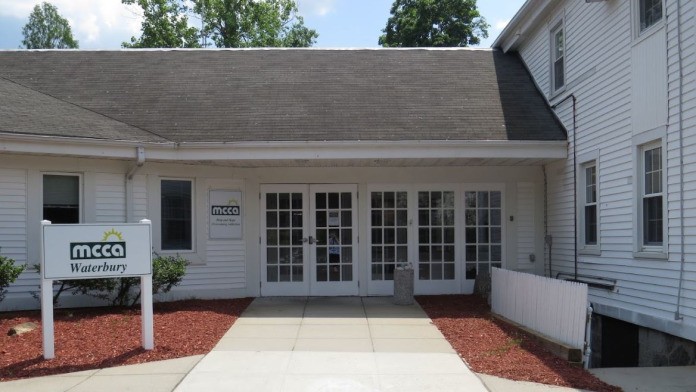
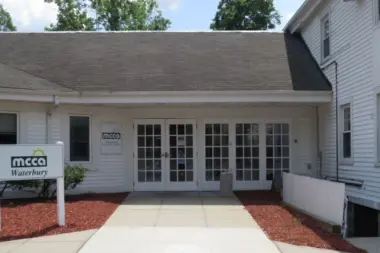
Accepted Insurance
Other Forms of Payment
Medicaid is a state based program that helps lower-income individuals and families pay for healthcare. Medicaid covers addiction treatment so those enrolled can use their coverage to pay for rehab. When a program accepts Medicaid the client often pays very little or nothing out of their own pocket.
Private insurance refers to any kind of healthcare coverage that isn't from the state or federal government. This includes individual and family plans offered by an employer or purchased from the Insurance Marketplace. Every plan will have different requirements and out of pocket costs so be sure to get the full details before you start treatment.
Self-pay involves paying for treatment out of your own pocket. You can use savings or credit, get a personal loan, or receive help from family and friends to fund your treatment. If you don't have insurance or your insurance plan doesn't cover a specific program, self-pay can help ensure you still get the care you need.
Financial aid can take many forms. Centers may have grants or scholarships available to clients who meet eligibility requirements. Programs that receive SAMHSA grants may have financial aid available for those who need treatment as well. Grants and scholarships can help you pai for treatment without having to repay.
Sliding scale payments are based on a client's income and family size. The goal is to make treatment affordable to everyone. By taking these factors into account, addiction recovery care providers help ensure that your treatment does not become a financial burden to you or your family, eliminating one barrier to care.
Medicare is a federal program that provides health insurance for those 65 and older. It also serves people under 65 with chronic and disabling health challenges. To use Medicare for addiction treatment you need to find a program that accepts Medicare and is in network with your plan. Out of pocket costs and preauthorization requirements vary, so always check with your provider.
Addiction Treatments
Levels of Care
Outpatient Programs (OP) are for those seeking mental rehab or drug rehab, but who also stay at home every night. The main difference between outpatient treatment (OP) and intensive outpatient treatment (IOP) lies in the amount of hours the patient spends at the facility. Most of the time an outpatient program is designed for someone who has completed an inpatient stay and is looking to continue their growth in recovery. Outpatient is not meant to be the starting point, it is commonly referred to as aftercare.
Treatments
Mental health rehabs focus on helping individuals recover from mental illnesses like bipolar disorder, clinical depression, anxiety disorders, schizophrenia, and more. Mental health professionals at these facilities are trained to understand and treat mental health issues, both in individual and group settings.
Programs
Adult rehab programs include therapies tailored to each client's specific needs, goals, and recovery progress. They are tailored to the specific challenges adult clients may face, including family and work pressures and commitments. From inpatient and residential treatment to various levels of outpatient services, there are many options available. Some facilities also help adults work through co-occurring conditions, like anxiety, that can accompany addiction.
Young adulthood can be an exciting, yet difficult, time of transition. Individuals in their late teens to mid-20s face unique stressors related to school, jobs, families, and social circles, which can lead to a rise in substance use. Rehab centers with dedicated young adult programs will include activities and amenities that cater to this age group, with an emphasis on specialized counseling, peer socialization, and ongoing aftercare.
Clinical Services
Cognitive Behavioral Therapy (CBT) is a therapy modality that focuses on the relationship between one's thoughts, feelings, and behaviors. It is used to establish and allow for healthy responses to thoughts and feelings (instead of unhealthy responses, like using drugs or alcohol). CBT has been proven effective for recovering addicts of all kinds, and is used to strengthen a patient's own self-awareness and ability to self-regulate. CBT allows individuals to monitor their own emotional state, become more adept at communicating with others, and manage stress without needing to engage in substance abuse.
Whether a marriage or other committed relationship, an intimate partnership is one of the most important aspects of a person's life. Drug and alcohol addiction affects both members of a couple in deep and meaningful ways, as does rehab and recovery. Couples therapy and other couples-focused treatment programs are significant parts of exploring triggers of addiction, as well as learning how to build healthy patterns to support ongoing sobriety.
Dialectical Behavior Therapy (DBT) is a modified form of Cognitive Behavioral Therapy (CBT), a treatment designed to help people understand and ultimately affect the relationship between their thoughts, feelings, and behaviors. DBT is often used for individuals who struggle with self-harm behaviors, such as self-mutilation (cutting) and suicidal thoughts, urges, or attempts. It has been proven clinically effective for those who struggle with out-of-control emotions and mental health illnesses like Borderline Personality Disorder.
Research clearly demonstrates that recovery is far more successful and sustainable when loved ones like family members participate in rehab and substance abuse treatment. Genetic factors may be at play when it comes to drug and alcohol addiction, as well as mental health issues. Family dynamics often play a critical role in addiction triggers, and if properly educated, family members can be a strong source of support when it comes to rehabilitation.
Group therapy is any therapeutic work that happens in a group (not one-on-one). There are a number of different group therapy modalities, including support groups, experiential therapy, psycho-education, and more. Group therapy involves treatment as well as processing interaction between group members.
In individual therapy, a patient meets one-on-one with a trained psychologist or counselor. Therapy is a pivotal part of effective substance abuse treatment, as it often covers root causes of addiction, including challenges faced by the patient in their social, family, and work/school life.
Trauma therapy addresses traumatic incidents from a client's past that are likely affecting their present-day experience. Trauma is often one of the primary triggers and potential causes of addiction, and can stem from child sexual abuse, domestic violence, having a parent with a mental illness, losing one or both parents at a young age, teenage or adult sexual assault, or any number of other factors. The purpose of trauma therapy is to allow a patient to process trauma and move through and past it, with the help of trained and compassionate mental health professionals.
Staff

John D’Eramo, RN, BSN, MHA
President & CEO
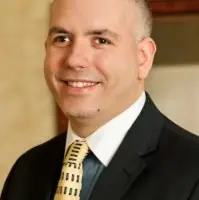
Glenn Connan, MBA
VP & CFO
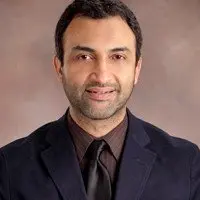
Mohamed Elsamra, MD
Medical Director
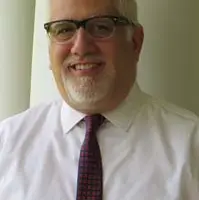
Steve Palma, MS, LPC
VP of Operations
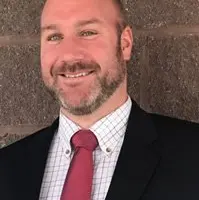
Scott Nelson, MSW, LCSW, ICGC-II
Clinical Director, Outpatient Services

Victor Pittman, LMFT
Residential Clinical Director
Contact Information
34 Murray street
Waterbury, CT 06710




